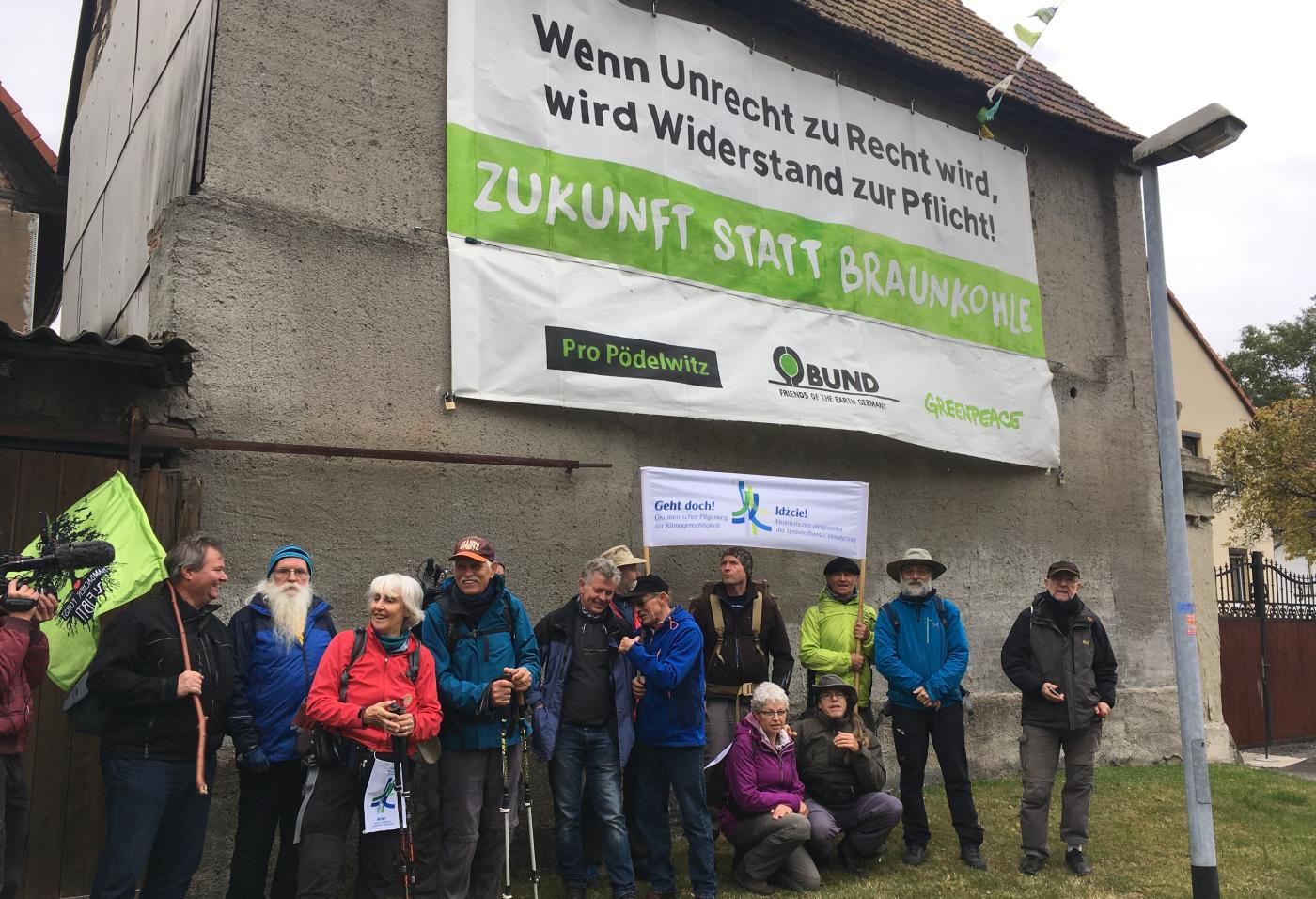For decades I have been trying – together with social movements – to raise awareness in our churches and politics that we in the rich North, particularly in Germany, are living at the expense of people and nature in the global South, and that we offload the consequences to other parts of the earth. My focus is on the subject of justice. I believe that there cannot be solutions to the climate crisis if the issues of resource and social justice are not addressed. Peace in the world also heavily depends on this.
Therefore, from the beginning of our 3rd Ecumenical Pilgrimage for Climate Justice from Bonn to Katowice, I referred to the “Pilgrimage of Justice and Peace", which was decided on at the WCC Assembly in Busan in 2013. During the planning stage, we took up Busan's suggestion to visit places of pain and sites of strength.
We agreed that the biggest climate killer is brown coal, and that by abandoning brown coal we would come much closer to the goal of reducing CO2 emissions in Germany.
When I saw on the map that the route also led through the territory of our regional church, I was immediately inspired. This was infectious: key decision makers were also moved to support this pilgrimage.
I myself live in the south of Leipzig, which is still being damaged in some places by brown coal strip mining. I especially wanted to draw attention to our neighboring village of Pödelwitz. Pödelwitz is a 700-year-old farming village which will fall victim to brown coal strip mining by the Mitteldeutsche Braunkohlengesellschaft (MIBRAG) in 2028-29.
It is like David's battle against Goliath: a large corporation gradually buying up land in Pödelwitz. And it is doing so despite the fact that the village is not even designated as a place for strip mining so far and is located in the extreme outskirts. The case of Pödelwitz also "undermines" the energy transition here.
But the remaining 26 inhabitants of Pödelwitz continue fighting. Among them is the blacksmith Thilo Kraneis. His father is facing his third relocation: after fleeing Silesia, the family settled in Heuersdorf and had to make way for coal. "I'll stay here, no matter what happens," underscored Thilo Kraneis.
Together with his neighbors he is fighting against the overly powerful MIBRAG, like David once did against Goliath. He recently terminated his contract with his main employer, the Mitteldeutsche Braunkohlengesellschaft. But perhaps he will soon have a new employer: the parish council has decided to completely renovate the old church – also as a sign of hope for the people in this region.
The pilgrims of the 3rd Ecumenical Pilgrimage for Climate Justice reached their destination on 7 December 2018.
After 92 days and 1,883 kilometers walking from Bonn to Katowice, the pilgrims demanded more climate justice for other regions and future generations from the politicians of the world, and especially from those of Germany.
Not only in Germany but also in Poland, they spoke with people on the street, in churches, schools, town halls, and parliaments about the causes and consequences of our economy and lifestyle. They publicized their ideas about abandoning coal and mustered support for their demand from the German government.
As a pedagogue, I am convinced that this ecumenical pilgrimage is one of the best ways to raise awareness of the issues of justice, peace and the integrity of creation.
Translated from German by the WCC language service. Download the original text in German (pdf).

